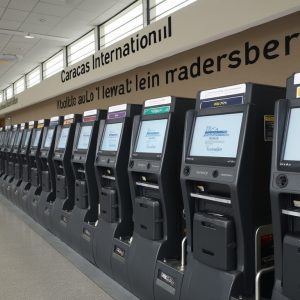MORE INTELLIGENCE ON NEW ISIS LEADER
The weekend of 07-09 February the program sina’t al-mawt (industry of death) which airs on the Saudi-owned Arabic language satellite TV channel al-Arabiyya TV, devoted the entire half hour program to the new ISIS leader. The information in the following report was extracted from that program which included documents from Iraqi Intelligence plus face-to-face one-on-on interviews between an al-Arabiyya correspondent and three different ISIS prisoners currently being held in Iraqi prisons. The al-Arabiyya correspondent, and the program’s host back in the U.A.E. also contributed comments.
The ISIS leader’s real name was Amir Muhammad Sa’eed ‘abd ar-Rahman al-Mawli
al-Silbi. He was also known at times by the name of Hajj ‘abd Allah, and ‘Abd Allah Qardash. (Note: Iraqi intelligence believes, or believed, that Qardash was another individual who was killed two years ago. However, all three ISIS prisoners interviewed for this program used the name “Qardash” to refer to the new leader of ISIS.)
He was described by the prisoners as being very close to the late leader Abu Bakr
al-Baghdadi, and held the same views. He was described by the program host as being the most vicious of the ISIS leaders. A report in London’s The Telegraph claimed that he led the enslavement of the Yazidis.
According to the prisoners, al-Baghdadi named this individual as na’ib al-Khalifah (the vice-Caliph), so the succession was set up well before al-Baghdadi’s demise. Upon
al-Baghdadi’s death and Qardash’s assumption of the leadership of ISIS he assumed the “movement” name of Abu Ibrahim al-Hashimi al-Quraishi. Even though he reportedly does not have a drop of Arabic blood in him, he connected himself to the mythical “Quraish” tribe on the belief that every Caliph must be of the same tribe as was Muhammad. In actuality he is an Iraqi of Turkmani ethnicity and speaks with a heavy Turkmani accent.
Qardash, or Abu Ibrahim, was born in 1976 (making him about 44 years old now) grew up in the town of Tell ‘Afaar in the Nineveh province of Iraq. His father was an Imam of one of the local mosques. Qardash aka Abu Ibrahim studied Sufism for awhile before joining up and working with extremist groups. He began working with the extremist groups in 2003, and in 2006 he joined the al-Qaeda in Iraq group headed by the notorious Mus’ab az-Zarqawi (which later morphed into ISIS).
In 2008 he was captured by the American forces and sent to the Buqqa prison where he became prisoner #326175, and was listed as being 177 centimeters tall.
With the U.S. withdrawal in 2011, and the rise of ISIS, he was released from prison and rose rapidly in the ISIS ranks until becoming the number two guy. He is now not only the defacto tactical and political leader of ISIS, but its chief ideologue as well.
MORE ISIS NEWS
On 09 February the Saudi-owned al-Arabiyya TV reported that Iranian supreme guide Khamenei has issued a fatwa declaring that it is allowable for former members of ISIS to fight on behalf of Iran and the Syrian regime of Bashar al-Assad.
This sounds strange to western ears because one of the chief short term goals of ISIS was to exterminate most of the Shi’a and force them back to a small enclave in what is now Iran. They also destroyed numerous Shi’a shrines and mosques throughout the Middle East. But, in the Middle East, anything can and does happen.
A guest interviewed by al-Arabiyya said that this fatwa was issued because “groups” of former ISIS prisoners have “repented” and have asked to join up with the Syrian regime to fight “other radicals.” (The term used here was takfeeri which is a term that radical Arab Muslims use to declare other Muslims to be non-believers or heretics.)
ANALYSIS:
This switching of sides by certain groups of ISIS fighters should not be interpreted to mean that all of ISIS has become an arm of Iran, because ISIS has active franchises and cells all over the globe who answer to no one but the organization and the above-mentioned new leader. What happened here is that these “groups” of ISIS fighters were prisoners either of the Assad regime, or the Iranians, and they were given the option of either joining the forces fighting on behalf of the Assad regime and Iran, or else be executed.
Not a difficult decision to make, but it does fly in the face to the oaths they swear to each other as they are inducted into ISIS and/or in preparation for a mission, to “die on behalf of Allah.” But it does look like aiding heretics and staying alive beats those seventy-two virgins and paradise by a mile.
Another factor that is likely playing into the Iranian decision to issue this fatwa is the upcoming Turkish onslaught in Idlib province and the Assad regime’s desperate need for manpower to face this onslaught. What we have developing in Syria’s Idlib province, and for Syria as a whole, is a three-way struggle between Iran on one side, Turkey on another side, and the Assad regime (with Russian help) on the third side.
Many in the West will cheer this development, thinking it great that all the bad guys are fighting each other. But the problem with that reasoning is that the Christian and other hard-pressed minorities are going to be caught in the middle and exterminated–particularly if either side other than the Assad/Russian side wins this struggle.
Iran, of course, has its own ambitions to consolidate its “Shi’a crescent” connecting Iran with the Mediterranean Sea via its proxies in Iraq, Syria, and Lebanon. A Turkish domination of Syria, and particularly the Idlib province, would drive a wedge through that “Shi’a cresecent.”
Turkey’s goal in the Idlib province is to expand the square mileage of Erdogan’s “neo-Ottoman Empire, and to use Idlib as a stepping stone for the eventual conquest of all of Syria–once the Russians have been removed from the scene.
The Assad regime simply wants to survive. Russia’s interest in the Assad regime is to maintain the military bases and offshore oil rights that the Assad regime has granted it in turn for military help. Thus, both Putin and Assad would love, in an ideal situation, to keep both Turkey and Iran out of Syria entirely.
What most Americans don’t realize is that the Assad regime, though a brutal dictatorship, was a secular regime and they protected minorities such as the Middle East’s Christians. The regime’s alleged “Shi’a” religion was an offbeat brand Middle Easterners termed as “‘Alowiyya” and in western terminology “Alowites.” This means that they claim to trace their origins back to Muhammad’s cousin, adopted son, and son-in-law ‘Ali, as do mainstream Shi’a. However, the Syrian Alowites have a lot other elements, pre-Islamic, and even pre-Christian elements woven into their religion. But the origins, roots, and foundation of the Assad regime was (and is) secular state socialism. Their non-denominational heritage is what makes them the only player in this arena inclined to protect minorities.
The Assad regime accepted aid from the Iranians early in the Syrian civil war entirely out of desperation, and not because they wanted to see Iran dominate the entire region, or because they believe in and want to aid Iran’s religiously motivated goal of destroying the West. Also, people must remember that Iran entered this war long before the Russians did. Russia entered only reluctantly, and only when it became obvious that the Iranian intervention had failed to stem the tide against the regime. So, Russia entered the war–but only after exacting a very heavy price out of the Assad regime.
The situation that we have arrived at now is that Iran has no more help to give. It is increasingly embattled at home with mass anti-regime demonstrations almost every week, a failing economy, and its foothold in Iraq is also slipping away thanks to almost daily mass demonstrations against Iran and Iranian puppets currently controlling Iraq. This is why Khamenei was forced to turn to the last available pool of manpower to stem the Turkish tide–their mortal enemies in ISIS.
Now, this takes us to the Russia-Turkey situation in Syria. When (not if) Turkey launches a full-scale military operation to seize all of Idlib province preventing the Assad regime from regaining control over what was once part of its country, what does Russia do?
In any full-scale confrontation in Syria between Turkey and Russia, Turkey wins. The available Russian air power in Syria would most likely control the airspace, since they have better pilots. They could thus destroy most of Turkey’s tanks and other heavy equipment on the ground. But air power alone can not win a war. You win by controlling the real estate on the ground, and you control the real estate only by having boots on the ground.
The Russians do not have any significant ground forces on location in Syria. Neither the Assad regime nor the Iranians can provide any more boots on the ground than they already have. In order for the Russians to send adequate forces to Syria, they have to do so by ship, through the Black Sea and the Bosphorus and Dardanelles straits–both of these straits are very narrow chokepoints, and both are controlled from both sides by the Turks. In a state of war, all Russian ships would obviously be kept bottled up in the Black Sea with no way out.
The only other option for Russia would be to send their troop-carrying ships westward through the Baltic and eastern Atlantic, through the Pillars of Hercules and across the full length of the Mediterranean. By the time they got there . . . game over. Turkey would have already won.
The only other way the Russians could get troops to Syria is to fly them in, but at 200 or so men per plane, how many plane loads would it take to build a sufficiently large army on Syrian soil?
Compare the situation with Turkey which has over 500,000 men under arms and only has to truck them down across a border that they already control and into a province (Idlib) which neighbors Turkish soil and is already controlled by Turkey’s client al-Qaeda and related groups.
The only way Russia could win a war with Turkey in Syria would be to launch a full-scale attack against Turkey itself–which could well trigger a World War III given the fact of Turkey’s NATO membership and the fact that any direct attack against Turkey would necessitate, by treaty, a full scale NATO attack against Russia.
Taking all of this into consideration, my guess here is that Turkey, aware of Russia’s predicament will continue to press its expansionist goals in Syria. It will take over Idlib province, claiming that failure to do so constitutes a security threat to Turkey. Russia, also aware of the above facts on the ground, will have no choice but to seek some face-saving way out of the predicament.
And, the West will cheer. Mistakenly. In my view a Turkish domination of Idlib, and subsequently all of Syria, would be the worst possible scenario because Turkey is, by far, the greatest long-term threat to the West, and to the United States, than any of the other players in the Syrian area.
Iran is crumbling. And, even should the regime in Iran survive the next decade, they would have less ability to control Syria than they do in Iraq which they are also losing now. A Turkish control of Syria would also mean the completion of the extermination of the Kurdish, Christian, and Yazidi minorities that the ISIS and al-Qaeda elements had begun, and to which the Assad regime had formerly provided protection.
Turkish control of Syria would also constitute a much more serious threat to Israel, Jordon, and all the countries south of there, than would any of the other players in the Syrian arena. Thus, in consideration that all politics, and all diplomacy, is a choice between two or more evils, you always want to pick the lesser of those evils. And, in this case a Russian-supported secular Syria (whether led by Assad, or an “Assad lite”) is by far the lesser of these several evils.
And, this, folks, illustrates the great tragedy that the Trump administration’s decision to pull out of Syria represents. An American presence there not only kept the Turks and Iranians at bay, but our withdrawal and total absence also removed the United States as a voice in any future Syrian political solution. We had cards to play in Syria which we could have used to ensure the security of the minorities there, and one that could have kept ultra bad guys Iran and Turkey out. By our pulling all our cards off the table, we sacrificed not only the well-being of Syria’s Christian and other minorities, but also their very lives. We pulled all of our cards off the table and handed them to Turkey virtually guarantying an eventual Turkish take over of all of Syria which will then threaten the entire Middle East, including Israel.
MORE SYRIA/TURKEY/RUSSIA
In view of the above-mentioned conundrum Putin readily dispatched a delegation to Ankara to discuss with the Turks some way out of this deteriorating situation. www.aljazeera.net published a pair of articles on the Russo-Turkish meeting. The first article, posted on the eve of the meeting had this to say:
Russia came into the meeting wanting to enlarge the “no conflict” zone (agreed upon previously) between Turkey and Russia so that Russia could aid the Assad regime in reclaiming more of its former territory. The primary Russian goals in Idlib province are to insure that all “opposition” forces are removed from the province so that they (and the Syrian regime) can reopen highways 4 and 5 connecting Damascus with Aleppo, Syria’s (former) second largest city, and also to reopen the airports in the Laziqiyya area (where Russia has an airbase and a naval base).
The Turks, on the other hand, swear that they will never give up Idlib, and that to do so would be a serious threat to Turkish security. The Turks also claim that there are five million Syrian refugees in Turkey, and they need to expand their holdings in Syria in order to repatriate these Syrians back to their home country.
The follow-up article on www.aljazeera.net on the Russo-Turkish meeting noted that even while the discussions were going on, Turkey was engaged in reinforcing its troops already in Idlib by sending in more troops and equipment. In the end, the only thing the two sides could agree upon during the meeting was the usual platitude of “seeking a political solution.” They also agreed to meet again in the coming weeks.
The 10 February program Panorama on al-Arabiyya TV interviewed a Russian guest and a Turkish guest. The Russian claimed that Turkey had promised during a recent Soschi meeting to clear the areas around highways 4 and 5 so that Syria would have a clear path between Damascus and Aleppo, but they reneged on their promise. Therefore the Syrian army had to use force to dislodge them.
The Turk responded by saying that Turkey has no control over these groups so they can’t be blamed for the fact that the are still blocking the way on those highways.
The Russian, getting a little hot under the collar at this point noted that many of these extremist in Idlib actually come from Turkish-speaking regions of Central Asia and were brought there by Turkey and answer to Turkey.
COMMENT: I would like to add that not only are these groups working on behalf of Turkey’s caliphate dreams, but the only reason why a half dozen or so Turkish soldiers were killed by the recent Syrian attacks into the regions controlled by these terrorist groups was because they were working with these groups and perhaps even protecting them.
This whole Syria mess has to be seen as a defeat for Russia, since Russia has no cards to play in this game (see above). The al-jazeera view is that Russia and Turkey will reach some sort of agreement that will preclude the two sides going to war with each other. I agree, and that agreement will be most favorable to Turkey which will be to the detriment of the rest of the world.
/////////
ERDOGAN/LIBYA
According to a report on the Saudi-owned al-Arabiyya TV, during the month of January Turkey sent 2,400 Syrian mercenaries to Libya to help support the Sirraaj regime in Tripoli. As reported on this site previously, Turkey is paying each of these fighters $2,000.00 a month to fight in Libya whereas they were paying only $90.00 a month for them to fight in Syria.
One of the anchors on al-Arabiyya asked rhetorically whether Erdogan was planning to do the same in Somalia.
ERDOGAN/SYRIA
U.S. media reported this weekend that Turkey had sent a few tanks and other armored vehicles into Syria’s Idlib province. Al-Arabiyya TV reported the number of tanks and armored vehicles to be 200. This constitutes a major effort on the part of Erdogan not only to consolidate gains already made in Syria, but to enlarge his footprint there. More recent accounts (on www.alarabiya.net) have put the number of heavy vehicles at 450 (including tanks and APCs), and the number of Turkish troops at 6,000. This is a major deployment, and hints at a major military offensive to come.
EGYPT/AFRICA
During the recent “African Union” (AU) meeing in Addis Ababa, the main topics for discussion were the Libyan war and the Egyptian/Sudanese/Ethiopian bruhaha over the “Renaissance” dam Ethiopia is constructing. But, perhaps the most newsworthy item to come out of the meeting was Egyptian President as-Sisi proposing the formation of a “pan-African” force to combat terrorism.
COMMENT: I can hardly wait for the effectiveness of such a force.
//////////////////////////////
Barry Webb has logged a 25-year career as an Arabist for the NSA, has two MA degrees in related subject matter, and is currently a Senior Fellow with Americans for Intelligence Reform www.intelreform.org. He is the author of Confessions of an (ex) NSA spy: Why America and its Allies are Losing the War on Terror. His website is www.barrywebbauthor.com



